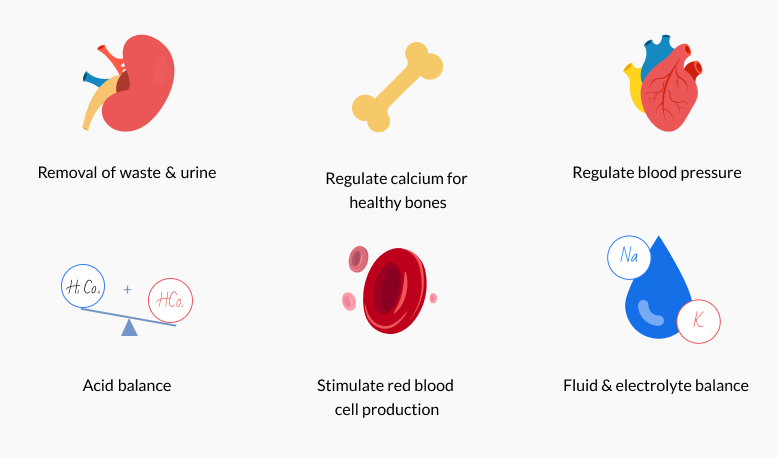Kidney Failure
- Home
- >
- Kidney Failure
- >
- Overview
Follow us on Facebook
Follow us on Instagram
Follow us on YouTube
Follow us on TikTok
Kidney Failure
Kidney failure or End Stage Renal Disease (ESRD) is defined as a state whereby the kidneys do not function properly or sufficiently, resulting in the accumulation of waste products and toxins.
Signs and Symptoms
- Ammonia breath
- Loss of appetite
- Diarrhoea
- Difficulty breathing
- Swelling
- Nausea/vomitting
- Loss of consciousness
- Anaemia
Anatomy and Functions of Kidneys
Our kidneys are bean-shaped organs located near the middle of the back on both sides where they are protected by lower ribs and cushioned by the surrounding muscles and fat.
Each kidney is about the size of a clenched fist and weighs about 150 grams. Each kidney has about one million nephrons, which are tiny, filtering units. These nephrons perform the essential function of filtering all the blood in the body.
When our kidneys are not functioning optimally, toxins and excess fluids cannot be removed from the body effectively.
This accumulation of waste products and toxins in the body may cause permanent and irreversible damage to body cells, tissues, and organs. Thus, for the patient to survive, kidney functions need to be replaced through a transplant or dialysis.
A Closer Look Inside a Kidney
Besides filtering, our kidneys also perform the following important functions:
